Last taught module of my Water and Wastewater Engineering MSc
14/02/2019
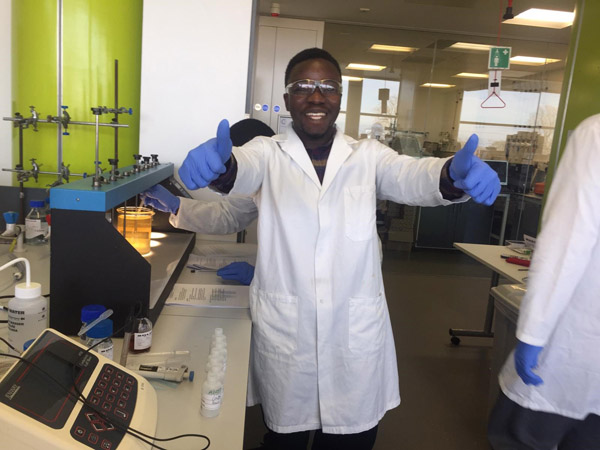
Getting to the end of the taught modules period of my Water and Wastewater Engineering MSc, my class had a slightly different touch to it; on the last day of a very important module (Physical Processes), we had a lab session. This lab session was to help us understand better the sedimentation process that takes place for the removal of flocs during water treatment.
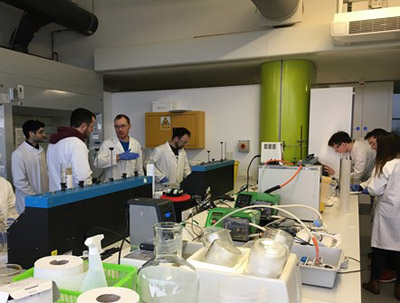
Picture 1. Half of the class experimenting with jar tests.
This lab session was rather challenging as we were required to be fast and precise when taking samples and measuring settling speeds, but it was also quite entertaining. Working in small groups contributed to a good balance between being “professional” and having fun.
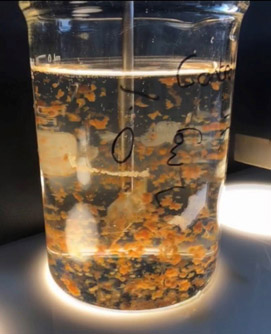
Picture 2. Formation and sedimentation of flocs.
One of the most interesting parts in this session, apart from using in practice the mechanisms that we had been learning about in our lectures, was the opportunity to observe our “creations” using a high-tech microscope and taking photographs of them! Undoubtedly, my team got the most creative in that, having captured the image of the following floc, which looks also like a sketched lateral view of a human face.
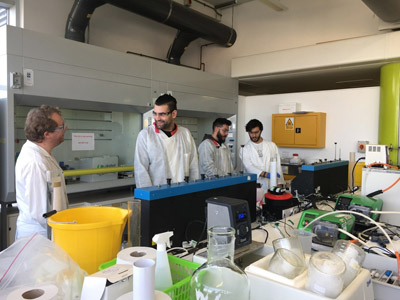
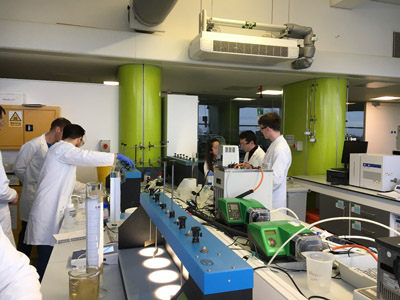
Picture 3 & 4. Others having fun, others being more “scientists”.
All in all, it was a very educative experience since we got to use several lab-based measuring devices and we learnt how flocculation, coagulation and sedimentation work in reality. Being able to appreciate the sunny day through the wide glass windows of the top-floor lab throughout the whole lab class, rendered this session as the best one to date!
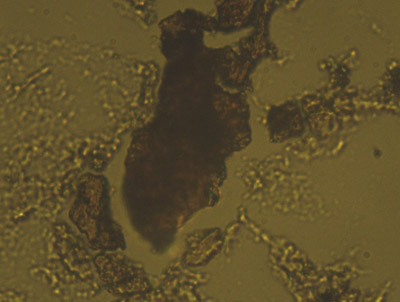
Picture 5. Creativity in science 101.
Categories & Tags:
Leave a comment on this post:
You might also like…
Keren Tuv: My Cranfield experience studying Renewable Energy
Hello, my name is Keren, I am from London, UK, and I am studying Renewable Energy MSc. My journey to discovering Cranfield University began when I first decided to return to academia to pursue ...
3D Metal Manufacturing in space: A look into the future
David Rico Sierra, Research Fellow in Additive Manufacturing, was recently involved in an exciting project to manufacture parts using 3D printers in space. Here he reflects on his time working with Airbus in Toulouse… ...
A Legacy of Courage: From India to Britain, Three Generations Find Their Home
My story begins with my grandfather, who plucked up the courage to travel aboard at the age of 22 and start a new life in the UK. I don’t think he would have thought that ...
Cranfield to JLR: mastering mechatronics for a dream career
My name is Jerin Tom, and in 2023 I graduated from Cranfield with an MSc in Automotive Mechatronics. Originally from India, I've always been fascinated by the world of automobiles. Why Cranfield and the ...
Bringing the vision of advanced air mobility closer to reality
Experts at Cranfield University led by Professor Antonios Tsourdos, Head of the Autonomous and Cyber-Physical Systems Centre, are part of the Air Mobility Ecosystem Consortium (AMEC), which aims to demonstrate the commercial and operational ...
Using grey literature in your research: A short guide
As you research and write your thesis, you might come across, or be looking for, ‘grey literature’. This is quite simply material that is either unpublished, or published but not in a commercial form. Types ...






